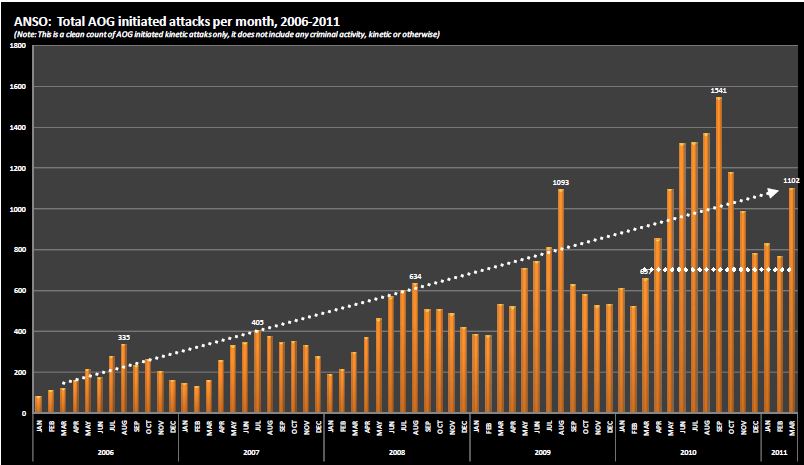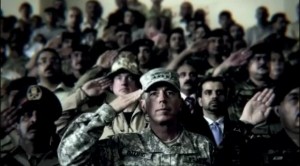ABC, Reuters Parrot Deceptive State Department Spin on Terrorism Data
Yesterday, the State Department released its annual Country Reports on Terrorism and held a briefing regarding the findings. Both ABC and Reuters covered the report and crafted their stories around a single finding from it: world-wide terror attacks decreased from 11,641 in 2010 to 10,283 in 2011. Both outlets decided (as the State Department dictated to them) that this decline was due to the death of Osama bin Laden just before the midpoint of 2011. ABC chose to use “Sharp Decline in Terror Attacks After Bin Laden Death” as their headline and Reuters went with “Al Qaeda decline hard to reverse after Bin Laden killing: US“.
However, even a cursory look beyond the comparison of the attack totals for 2011 compared to 2010 shows that drawing the conclusions stated by these headlines is completely unwarranted. First, take a look at the “noise” in the annual numbers for worldwide attacks. Data have only been collected for four years, 2007-2011 and the number jumps considerably from year to year:
I don’t think bin Laden also died in 2008 and 2009, so there must be some other reason the worldwide attack numbers went down in those years.
Looking further into the data, we see that the NCTC did break out the attacks that could be directly attributed to al Qaeda. Neither ABC nor Reuters chose to present this information in their stories, perhaps because it directly contradicts the narrative that the State Department wanted delivered:
Attacks by AQ and its affiliates increased by 8 percent from 2010 to 2011. A significant increase in attacks by al-Shabaab, from 401 in 2010 to 544 in 2011, offset a sharp decline in attacks by al-Qa‘ida in Iraq (AQI) and a smaller decline in attacks by al-Qa‘ida in the Arabian Peninsula (AQAP) and al-Qa‘ida in the Islamic Maghreb (AQIM).
That’s right. Attacks by al Qaeda actually went up in 2011, and yet the State Department and our subservient press are happily chirping that we have them on the run. From ABC Read more →




